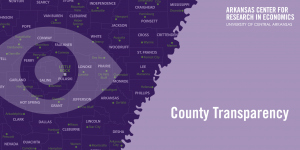By Joyce Ajayi
A popular adage says, “Many hands make light work.”
This means things are done quickly and efficiently when people work together. Transparency is a way to get more hands to lighten the work of making government accountable. Transparent governance creates platforms and initiatives for sharing information freely and openly. Many sets of eyes on government activity exposes both corruption and inefficiency. This benefits all citizens.
The idea is easy enough. Governments provide a website posting all the requisite financial, administrative, and political information online. The easily accessible website involves residents, in all local government processes and raises civic engagement. In the article “Key determinants of online fiscal transparency: A technology-organization-environment framework.” published in 2019 by the Public Performance and Management Review, authors Chen Gang, Hyewon Kang, and Luis F. Luna-Reyes explain that simple acts like publishing governments’ expenditures on an approved website can improve transparency in governmental operations. This kind of openness in government is also positively related to a citizen’s trust in government. Openness increases public trust. However, for openness to happen, it will require a collective effort from residents and public officials.
Faulkner County is a great example of a county making efforts to improve transparency. The Arkansas Center for Research in Economics (ACRE)’s annual Online County Web Transparency Index tracks county transparency in Arkansas. That index shows Faulkner County continuing to improve transparency. In the inaugural report published in 2018, Faulkner County scored 0.365 on a scale of 0 to 1. This means that Faulkner County published close to 37 percent of the important public information the ACRE index tracks. In the 2019 report, Faulkner County improved by publishing close to 60 percent of this information. Results from the 2020 report also show that Faulkner improved its transparency standing again. Why has Faulkner County continued to make progress in transparency while some other counties are struggling? Some residents, grassroots groups, and Justices of the Peace in the county work in favor of improving transparency and accountability. The county has made laudable progress.
On Friday, October 20 2020, the Quorum Court of Faulkner County passed into law the County Board Transparency Report Ordinance, Ordinance 20-21 sponsored by Kris Kendrick, Justice of the Peace (Dist. 9). The ordinance increases transparency by mandating that all county boards publish their reports online. County boards oversee critical services like law enforcement, election-related activities, firefighting, parks, libraries, ambulances, trash pickup, sewers, and water among other things. Counties are important. Providing easy access to information on county processes is good practice for transparency and accountability.
Now, boards like the Election Commission Board, Lake Conway Community Wastewater Utility Board, Public Facilities Board, Library Board, and the Volunteer Fire Department Board will make vital information easily accessible online to residents. Residents can also have easy access to information like board activities, the board’s purpose, the applicable ordinance governing each board, and names, phone numbers, emails, and contact addresses of all board members. This kind of openness in county government makes it easy for residents to know their county officials, direct questions to them, and hold them accountable.
This is not the first time Faulkner County has passed ordinances to improve transparency. In 2018, the Faulkner Quorum court passed Ordinance 18-16, (amended in 2019 by Ordinance 19-23), a law protecting the transparency of public meetings by mandating the quorum court to post recordings of its meetings on the county website. The county also passed Ordinance 19-22, mandating open and transparent bidding and contracting process, and Ordinance 19-28, mandating an open and transparent financial and spending system of county operations. Both laws give residents access to information on how their county government conducts business and spends their tax dollars. These laws were sponsored by Kris Kendrick, Justice of the Peace (District. 9), and the Courts and Public Safety Committee respectively. ACRE Policy Analyst Dr. Mavuto Kalulu testified in support of Ordinance 19-28.
Transparency in itself is not an end; it is the means to the end, which is accountability. We commend Faulkner County’s public officials for their conscientious efforts to be more transparent and accessible to residents every year. We also celebrate residents and grassroots groups that raise awareness about transparency issues and help officials become more accountable. More residents should get involved in the process for better governance.

